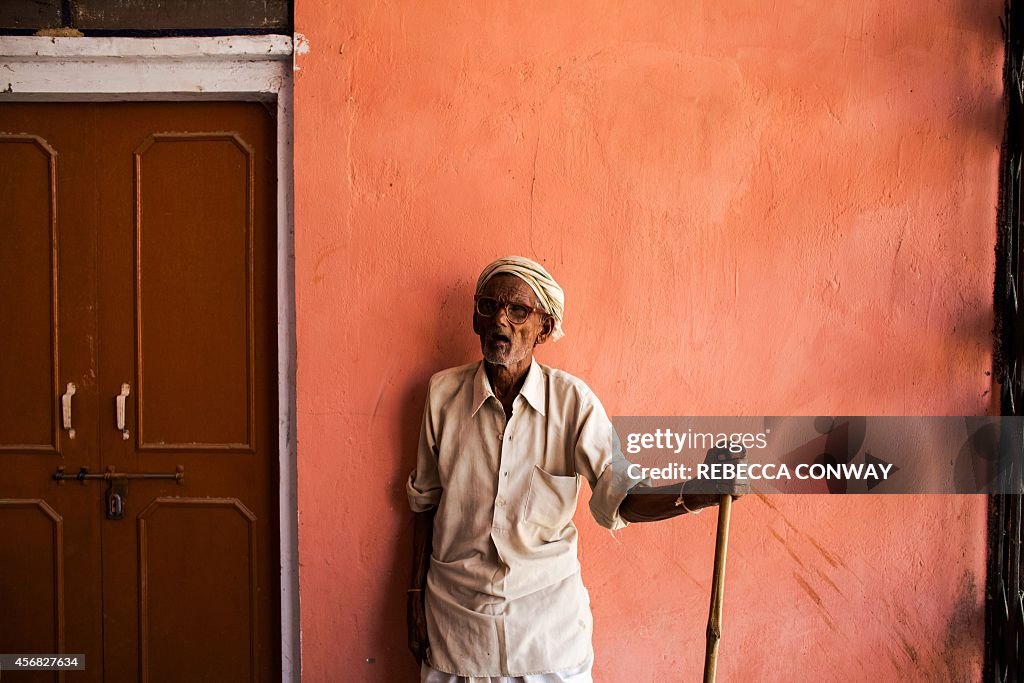INDIA-HEALTH-VISION-WORLD SIGHT DAY
In this photograph taken on August 28, 2014, an Indian resident waits to be seen at the Dr Shroff Charity Eye Hospital vision field camp in Chilori village, Reni, some 55 kms from Alwar in the state of Rajasthan. India's Dr Shroff Charity Eye Hospital operates a network of hospitals and vision centres in towns and villages in the states of Haryana, Uttar Pradesh and Rajasthan, and in the capital New Delhi, in an attempt to tackle avoidable blindness. Offering low-cost or pro-bono treatment for conditions like cataracts and glaucoma, staff travel to remote areas to provide check-ups at field camps, and work in vision centres in towns and villages, referring certain cases to larger hospitals. The Shroff network aims extend access to low-cost, high-quality eye care to those who might not normally be able to access or afford it. More women than men suffer problems with eyesight, according to staff at the Dr Shroff Charity Eye Hospital, because of the societal roles they take on. Women traditionally spend a greater amount of time working outdoors, exposed to harsh sunlight and UV rays. They often feed male family members and children first, consuming less-nutritious meals after others have eaten, and cook over naked flames where they exposed to smoke from animal dung, leaves or coal used as fuel. Women also earn less, and live in more unhygienic conditions which can lead to infections, while male family members often relocate to towns or cities for work, where conditions and salaries are better. The World Health Organisation estimates four in five cases of blindness globally are avoidable. World Sight Day is marked in 2014 on October 9, and calls for 'No More Avoidable Blindness'. AFP PHOTO/Rebecca Conway (Photo credit should read Rebecca Conway/AFP via Getty Images)

PURCHASE A LICENCE
How can I use this image?
$650.00
NZD
DETAILS
Restrictions:
Contact your local office for all commercial or promotional uses. Full editorial rights UK, US, Ireland, Italy, Spain, Canada (not Quebec). Restricted editorial rights elsewhere, please call local office.
Credit:
Editorial #:
456827634
Collection:
AFP
Date created:
28 August, 2014
Upload date:
Licence type:
Release info:
Not released. More information
Source:
AFP
Barcode:
AFP
Object name:
Hkg10104131
Max file size:
5760 x 3840 px (48.77 x 32.51 cm) - 300 dpi - 5 MB